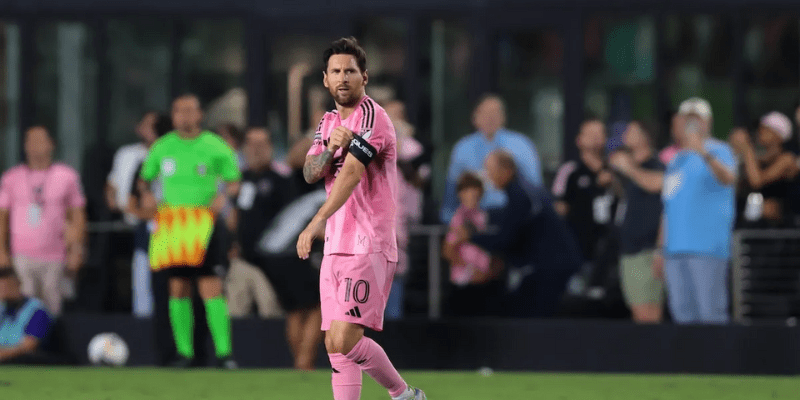So when fans search for “biggest loss in Manchester City history“, they’re hunting not just for a number—but for a moment of drama, humiliation, and the turning points that shaped the club.
In this article, BKKGoal will take you through City’s heaviest defeats across eras—league annihilations, shock cup results, European nights to forget—and explain why even in defeat, those matches tell a story. Let’s dig into the pain.
The record heaviest defeat: 10–2 to Small Heath (1893)

The earliest and still unsurpassed in margin is Manchester City’s 10–2 loss to Small Heath (now Birmingham City) in 1893. In that era, football was still finding its shape, defenses were rudimentary, and goals flew freely. But even by 19th-century standards, conceding eight in a match left a stain on the club’s history.
That loss stands as City’s biggest margin defeat ever in competitive play. It’s unlikely ever to be matched in the modern era—but its shadow lingers, a reminder of humble beginnings and the chaotic early football landscape.
Other historic drubbings: 9–1, 8–0, and 8–1

Beyond 10–2, a few other catastrophic losses pepper City’s record books:
- September 1906: Everton 9–1 Manchester City. A top-division hammering that remains one of the worst in Club history.
- December 1933: Wolverhampton Wanderers 8–0 Manchester City. One of the biggest first-division routs.
- 26 December 1894: Burton Wanderers 8–0 Manchester City. Again reflecting those rough days when margins could explode.
- 11 May 2008: Middlesbrough 8–1 Manchester City. The worst in the Premier League era.
- Also notable: in 1906 or 1907, City lost 9–1 in another heavyweight reverse (depending on source records).
These matches span decades, showing that the specter of a crushing defeat hasn’t been confined to one era. But modern safeguards—fitness, tactics, professionalism—make such scorelines far rarer today.
Premier League era low: 8–1 vs Middlesbrough, May 2008

In the Premier League era, where data is clean and historical records scrutinized, the match that often emerges as the definitive worst is Middlesbrough 8–1 Manchester City on 11 May 2008. That’s a goal difference of –7, which remains City’s single worst goal deficit in a match.
While City has suffered several heavy defeats, none in the modern era exceed that –7 benchmark. In that same matchweek, other losses such as 0–6 or 1–7 are sometimes listed, but none match the sheer margin of that Middlesbrough drubbing. atMuse])
Home ground disasters: worst at Maine Road / Etihad
A club’s worst home defeat carries extra shame. For Manchester City:
- 6–1 vs West Ham United in the 1961/62 season stands as the worst ever home defeat at Maine Road.
- In the modern era, City’s worst home defeat under Pep Guardiola is 4–0 against Tottenham at the Etihad, a heavy loss that broke the club’s home invincibility streak.
- Historically, City lost 5–1 at home to Arsenal in February 2003; this is cited in media coverage of home thrashings. sports.yahoo.com])
These home defeats bruise the club’s pride, because in front of their own fans is where City usually projects strength. When that fortress is breached, the echoes stay longer.
European and cup drubbings: the worst in tournaments
Biggest loss on the domestic stage is one thing, but across Europe and cup competitions, City has had its share of painful nights too:
- In European competition, the heaviest defeat is Barcelona 4–0 Manchester City in a Champions League group-stage match in 2016. While painful, it’s not among most extreme numerically—but given the stakes, the context adds weight.
- In the FA Cup, one of the worst recorded defeats is a 0–6 loss to Preston North End in January 1987.
- There are also anecdotal cup scorelines, but record-keeping is murkier.
In sum, while City’s European failures usually came with smaller margins, the significance of losing in continental knockout games often compounds the damage.
Why the biggest loss in Manchester City history still matters
You might ask: why keep circling these painful numbers? Because historic defeats serve as turning points and cautionary tales. They show:
- The evolution of club infrastructure: early heavy defeats stemmed.
- Tactical and professionalism leaps: modern clubs rarely collapse to eight-goal thrashings thanks to better coaching, squad depth, scouting, fitness regimes.
- Culture shifts: surviving humiliation forces clubs to rebuild—mentally, structurally, and strategically.
These matches also give fans perspective: even the greatest clubs have had their darkest days.
Top 5 worst defeats in Manchester City history (by margin)
Below is a ranked shortlist of the most lopsided losses City has endured:
| Rank | Opponent | Scoreline | Year / Competition | Margin |
| 1 | Small Heath | 10–2 | 1893 | –8 |
| 2 | Everton | 9–1 | 1906 | –8 |
| 3 | Burton Wanderers | 8–0 | 1894 | –8 |
| 4 | Wolverhampton Wanderers | 8–0 | 1933 | –8 |
| 5 | Middlesbrough | 8–1 | 2008 (Premier League) | –7 |
If we extend to home defeats or modern-era only, those lists shift—but these remain the all-time worst margins.
The moral, the comeback, and what’s next
History is cruel in its memory. The label biggest loss in Manchester City history may forever attach to that 10–2 disaster or the Premier League’s 8–1 shellacking. But what matters is how the club responded: building stronger squads, better defense, recruiting world-class talent, and insisting that those humiliations never repeat.
City today stands among European elites, yet those low points remind fans and critics alike that success isn’t linear. When defeat happens again (and it will), the measure of this club isn’t in the margin—it’s in how quickly they rise.
Final Thoughts
The biggest loss in Manchester City history spans eras: from a 10–2 beatdown in 1893 to a modern 8–1 collapse at Middlesbrough in 2008. Each such defeat is a snapshot of humility, a lesson in rebuilding and resilience.
At BKKGoal, we hope this journey through City’s darkest days enriches your perspective—and fuels your passion as a fan. Want match reports, player stats, or a dive into City’s stunning comeback matches? Let us know—your next read is just a click away.







